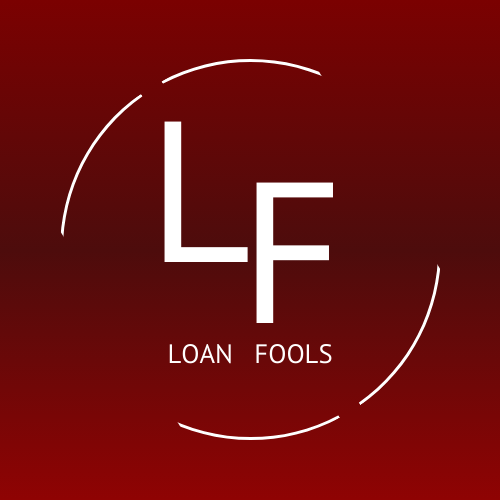Looking to buy a home? You have likely come across FHA and conventional loans. Each of these usual methods of buying a house comes with its pros and cons. There may be similarities between them, and this is what makes them preferred by some homebuyers over others.
This article will cover FHA vs. conventional home loans. We’ll cover subjects like interest rates, down payments, and mortgage insurance, among others.
About FHA Loans
FHA, standing for Federal Housing Administration, is a form of loan governed by the government. Their main objective is to assist low-income earners to own homes. Here are reasons why some people like one but some others prefer the other.
Pros:
Lower Down Payment: You don’t need a lot of money upfront. FHA loans are great because the down payment can be tiny. You might need only 3.5% to finance your home. That’s super for new homeowners or those who need to save more.
Flexible Credit Requirements: Even with bad credit, you can get an FHA loan. They’re more relaxed about credit scores than conventional loans. So, even if your score’s just 500, you might make it. You may need a bigger down payment, though.
Government Backing: FHA loans have the security of federal insurance. That means lenders feel safer and might give you better terms and rates. That’s good news, especially if your credit’s not so hot.
Higher Debt-to-Income Ratios:
Unlike others, FHA loans cater to individuals with a higher debt level, which means you can still apply even if you’re paying for stuff like student loans, cars, or other things.
Cons:
Mortgage Insurance Premiums (MIP): With FHA loans, you not only foot the bill for your loan but also upfront and recurring mortgage insurance premiums. This extra payment, while it protects lenders if you default, can add a big chunk to your housing cost.
Loan Limits: Each FHA loan has a cap, and that’s set by the Housing and Urban Department. This cap varies with location. If you’re in a pricey neighborhood, this cap can be a huge dissappointment if you’re eyeing a costly property.
Appraisal Process: When HA loans allow only some types of homes to be financed, they have a specific set of rules on what sort of homes would be acceptable.
The conditions herein are specific property restrictions that are deemed the minimum containment and occupancy standards. For example, they only approve of buying single condo units.
About Conventional Loans:
Conventional loans, true to their name, do not depend on government backing. Instead, private lenders or financial organizations fund them. While they lack FHA loans’s government guarantees, conventional loans provide unique benefits:
Pros:
No Mortgage Insurance Premiums (with 20% down payment): Conventional loans differ from FHA loans in that, if the borrower deposits at least 20% of the home’s buying price, they don’t need mortgage insurance. This could lead to considerable savings throughout the loan’s life.
Higher Loan Limits: Conventional loans usually have bigger maximum loan limits than FHA loans, especially in more expensive areas. This means borrowers can get loans for costly properties before hitting the loan maximum.
More Property Options: Regular loans offer more options in the types of properties you can buy. This includes properties like houses for investing, holiday homes, or condos that may not pass FHA standards.
Lower Fees: Conventional loans might come with lower fees at the end, compared to FHA loans. This is especially so for borrowers with a good credit score and a big down payments.
Cons
Larger Initial Payment: These loans usually require a larger down payment (5%–20% of the property’s value) than FHA loans. This could become an obstacle for people who earn average wages or have low credits.
Stricter Credit Requirements: Generally, conventional loans have stricter credit requirements than FHA lenders. Those who happen to have bad credit scores might have problems securing good loan terms or might have to use other loan alternatives.
Challenges for Borrowers with Small Budgets: Conventional loans may not be the best for people with less money or those who need financial security. They don’t have the same government support that FHA loans do. This lack of backing might make lenders think twice about loaning money to those they view as a risk.
Similarities
Interest Rates: Both FHA and conventional loans have fixed and adjustable mortgage rates. There, borrowers must compare the rates before choosing.
Application Process: To qualify for any of the loans, you might require that you submit some financial documents, as well as undergo a credit review, or a letter of pre-approval from a lender.
Loan Duration: Although FHA and conventional types of loans mostly offer loan durations of 15 to 30 years, it is possible to obtain loans with durations of even 40 years.
Higher Loan Limits: Conventional loans usually have bigger top loan limits than FHA loans, especially in more expensive areas. This means borrowers can get loans for costly properties before hitting the loan maximum.
Diverse Property Choices: Traditional loans provide a variety of property options. This extends from investment houses to holiday homes or condos, which may not meet FHA criteria.
Reduced Costs: Conventional loans tend to have lower ending fees compared to FHA loans. This holds especially true for borrowers with higher credit scores and considerable down payments. The total loan cost becomes more affordable.
5 Types of Conventional Loans
1. Fixed-Rate Conventional Loans
A fixed-rate conventional loan keeps the interest rate the same for the full loan term. This means monthly payments stay the same, making it easier for borrowers to plan their budgets.
2. Adjustable-Rate Mortgages (ARMs)
With adjustable-rate loans, the interest rate changes over time based on market changes. The loan starts with a fixed rate, and then adjusts—the common types are 5/1, 7/1, and 10/1. The first number tells how many years the rate has been fixed. The second number shows how often the rate changes after that.
3. Conforming Loans
Conforming loans follow the loan limits put in place by Fannie Mae and Freddie Mac, two companies backed by the government that buy mortgages from lenders. These loans must meet rules about the loan amount, initial payment, credit score, and the borrower’s income relative to debt.
4. Jumbo Loans
Jumbo loans go beyond the maximum loan limits put forth by Fannie Mae and Freddie Mac. They’re used mostly for high-cost homes or properties in pricy markets. Jumbo loans call for a larger loan amount and often have tougher eligibility rules.
5. Low-down payment
If you’re buying a house for the first time or have limited money for a down payment, a conventional loan with a small down payment could work. These loans usually require down payments of only 3–5%. So, having less savings isn’t a problem.
3 Best FHA Loan Lenders
1. Rocket Mortgage: This platform is well-known for straightforward online applications and special approvals. Their FHA loans are competitively priced, and customer service is top-notch.
2. Wells Fargo: Wells Fargo is a well-known lender with high customer service and reliability scores. They have a variety of FHA loans to accommodate diverse financial circumstances.
3. Bank of America: This name needs no introduction. You’ll find plenty of FHA loan options, and unmatched customer service.
Read also: The 5 Best FHA Loans Without A Cosigner Of 2024
Conclusion
After looking at everything, it’s obvious that both FHA and conventional loans have their own set of pros and cons. FHA loans make things easy with less strict requirements for down payment and credit, but they also come with extras like mortgage insurance premiums and appraisals.
On the contrary, conventional loans may require sizable down payments and good credit scores, but they showcase adaptability, offer generous loan limits, and could be more economical in the long run.
However, the choice between the two boils down to you, your financial situation, preferences, and housing objectives. Take your time, do your homework, weigh all the options, and consult a mortgage pro to make a wise decision.

